Aquind cross-Channel cable permission refused by government
- Published
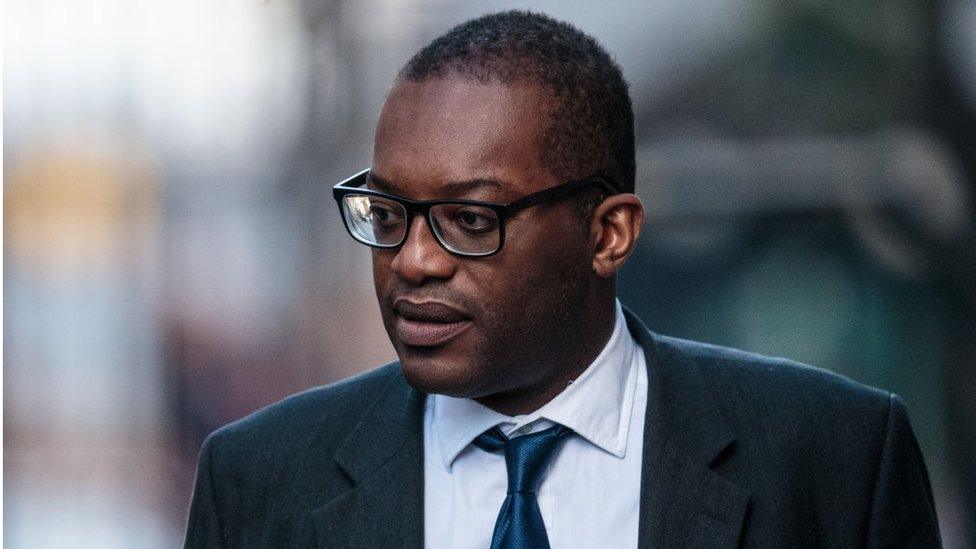
Business Secretary Kwasi Kwarteng refused Aquind Ltd development consent
The UK government has refused permission for a £1.2bn electricity link between England and France.
Aquind Ltd wanted to lay cables through Portsmouth, Hampshire, to Normandy.
But a decision notice posted on the government's website, external said Business Secretary Kwasi Kwarteng was not satisfied "more appropriate alternatives to the proposed route" had been fully considered.
Aquind said it was "disappointed" and would consider a legal challenge.
The company - which is part-owned by Russian-born Victor Fedotov - and another of his businesses, have donated £700,000 to 34 Conservative MPs since the Aquind project began, the BBC Panorama programme reported in October.
Another director, Ukrainian-born Alexander Temerko, has donated a further £700,000 to the party.
Aquind has previously said the planned 2GW interconnector could supply up to 5% of the UK's energy needs.
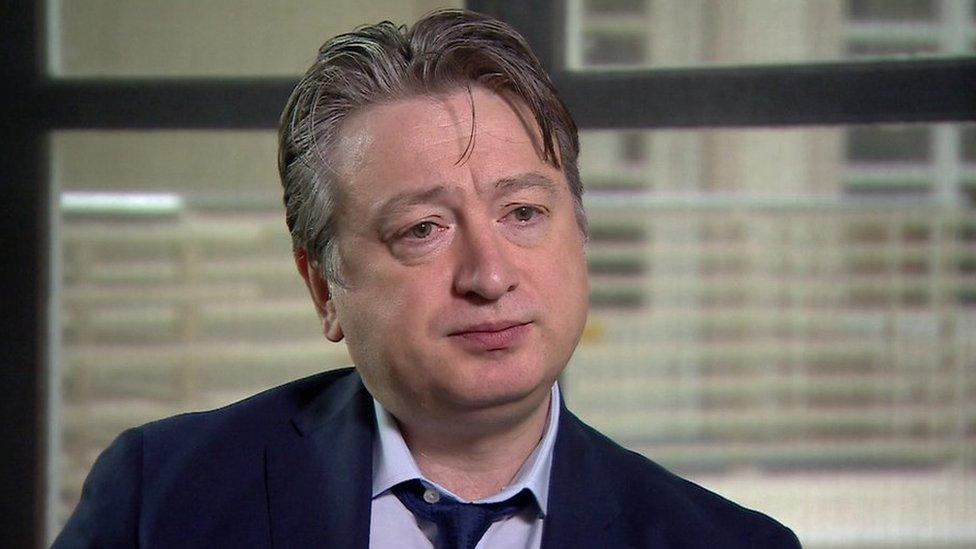
Aquind is part-owned by Ukrainian-born British businessman Alexander Temerko
The decision letter said the project's "proposed landfall in an urban location" was of particular concern to Mr Kwarteng.
It said: "The Secretary of State considers that in the circumstances of this particular application it is exceptionally necessary to consider whether sufficient consideration has been given to whether there are more appropriate alternatives to the proposed route."
Both Portsmouth MPs, Labour's Stephen Morgan and Conservative Penny Mordaunt, have objected to the scheme.
Ms Mordaunt, also a trade minister, celebrated the decision by tweeting "we did it".
She said: "Thank you to everyone who campaigned against Aquind and this ridiculous proposal that would have damaged our city and it would have damaged the country."
Flick Drummond, MP for West Meon, said the decision was "extremely good news".
"It was going to be very disruptive to my constituents so they will be very pleased," she said.
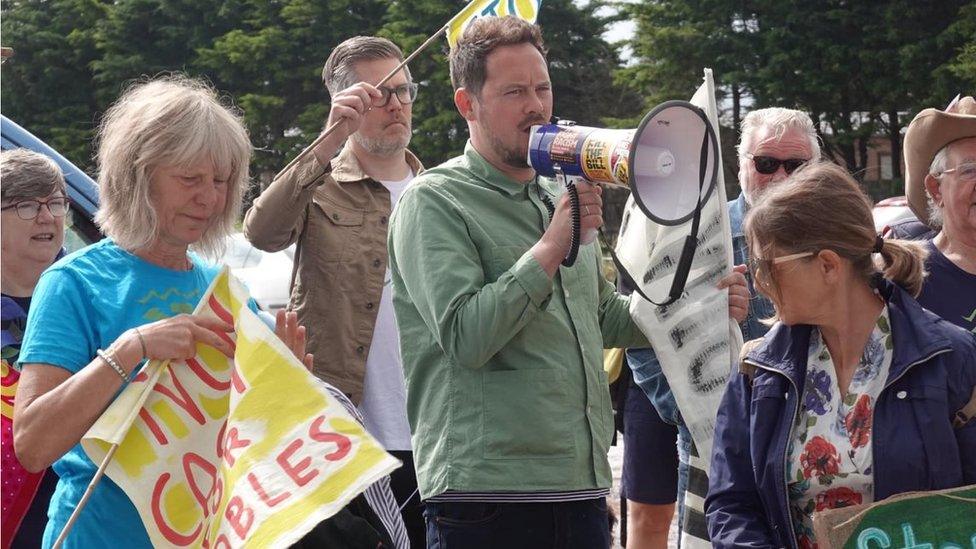
MP Stephen Morgan, pictured with a megaphone, has supported local protesters against the project
Mr Morgan said: "The government have finally seen sense and stopped the disastrous Aquind project.
"This is a victory for the people of Portsmouth over years of uncertainty and Tory cronyism."
Portsmouth protest group Let's Stop Aquind also voiced opposition to the project.
It said: "The Pandora Papers investigation revealed the hidden wealth of Aquind's owner and cast further doubts on the suitability of this company for a Nationally Significant Infrastructure Project."
Lawyers for Aquind and Mr Temerko previously said their donations were "entirely lawful, properly declared and have not been made in return for any special treatment".
Mr Fedotov said that he "has never had any interest in British politics and has operated in an open and transparent manner".
The Conservative Party said fundraising was a legitimate activity and did not influence political policy.
'Judicial review'
In a statement released following the announcement, an Aquind spokesperson said: "We disagree with the decision of the secretary of state, and the rationale behind it.
"We are considering the decision, the grounds for the refusal, and a potential legal challenge (judicial review).
"We believe our application for a development consent order to be accurate and robust, and it has met all the requirements.
"We will continue the development of Aquind Interconnector, and we will be engaging with the relevant parties in the coming weeks."

Follow BBC South on Facebook, external, Twitter, external, or Instagram, external. Send your story ideas to south.newsonline@bbc.co.uk, external.
- Published21 October 2021

- Published4 October 2021
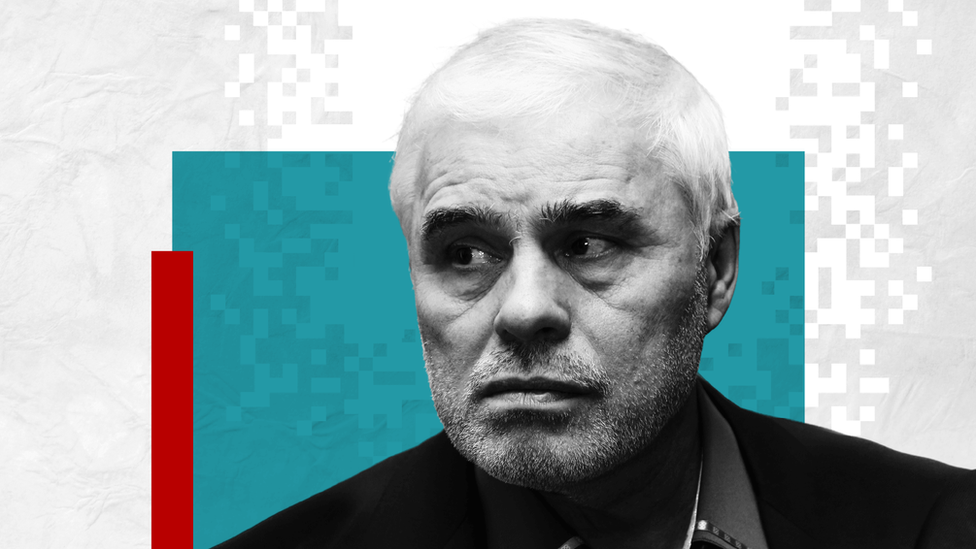
- Published13 July 2021
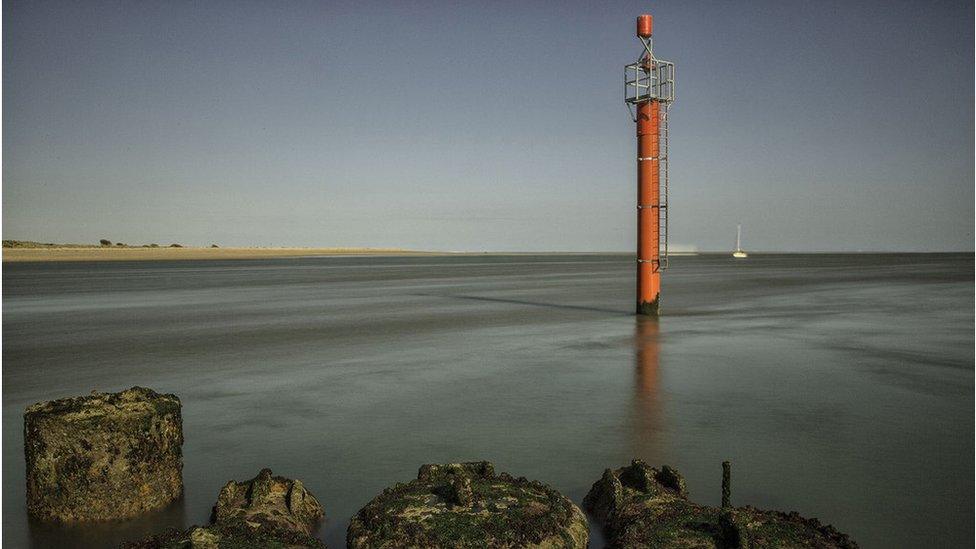
- Published4 July 2021
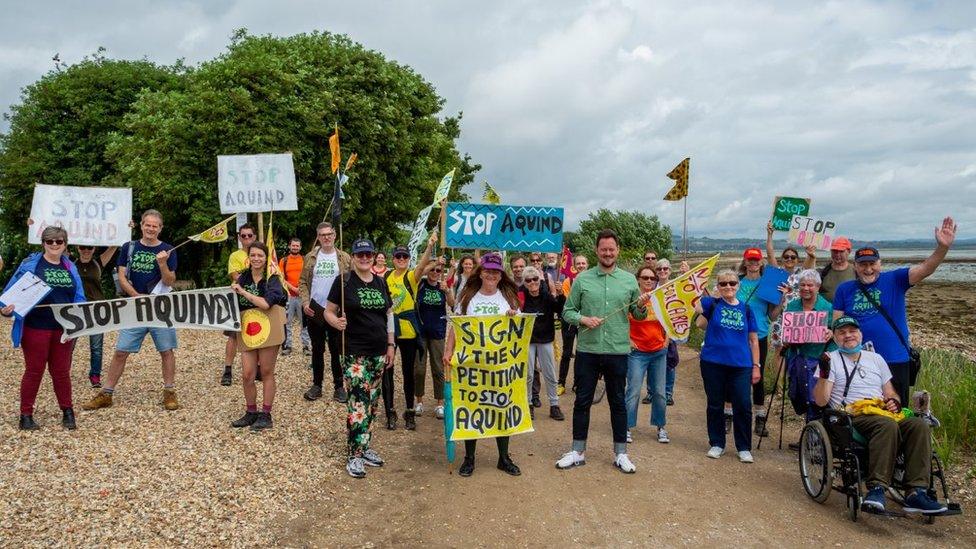
- Published26 January 2021
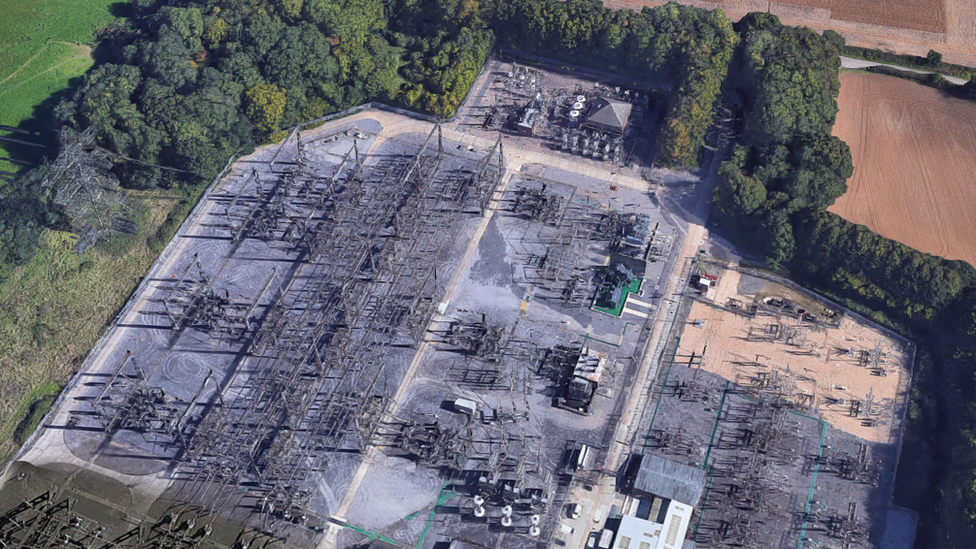
- Published10 October 2020
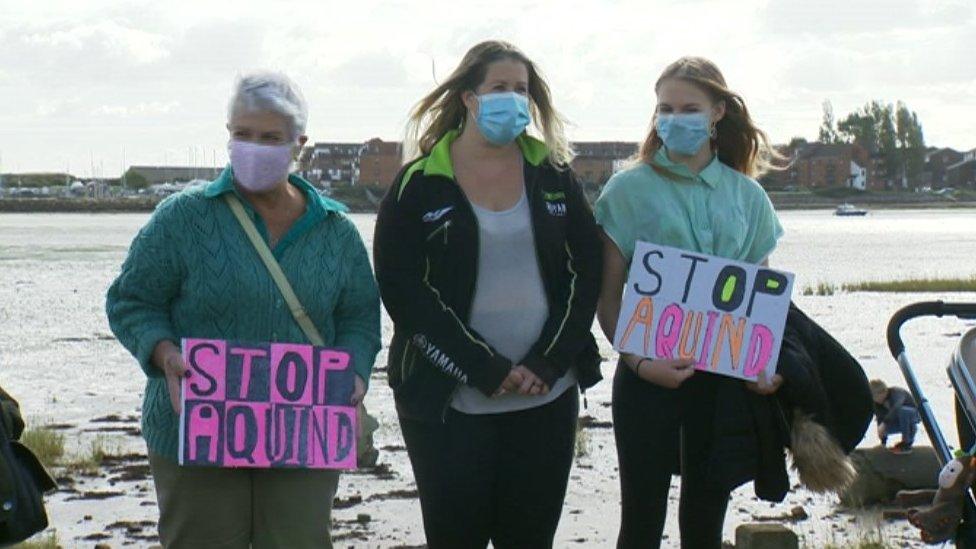
- Published15 November 2019

- Published13 June 2016
